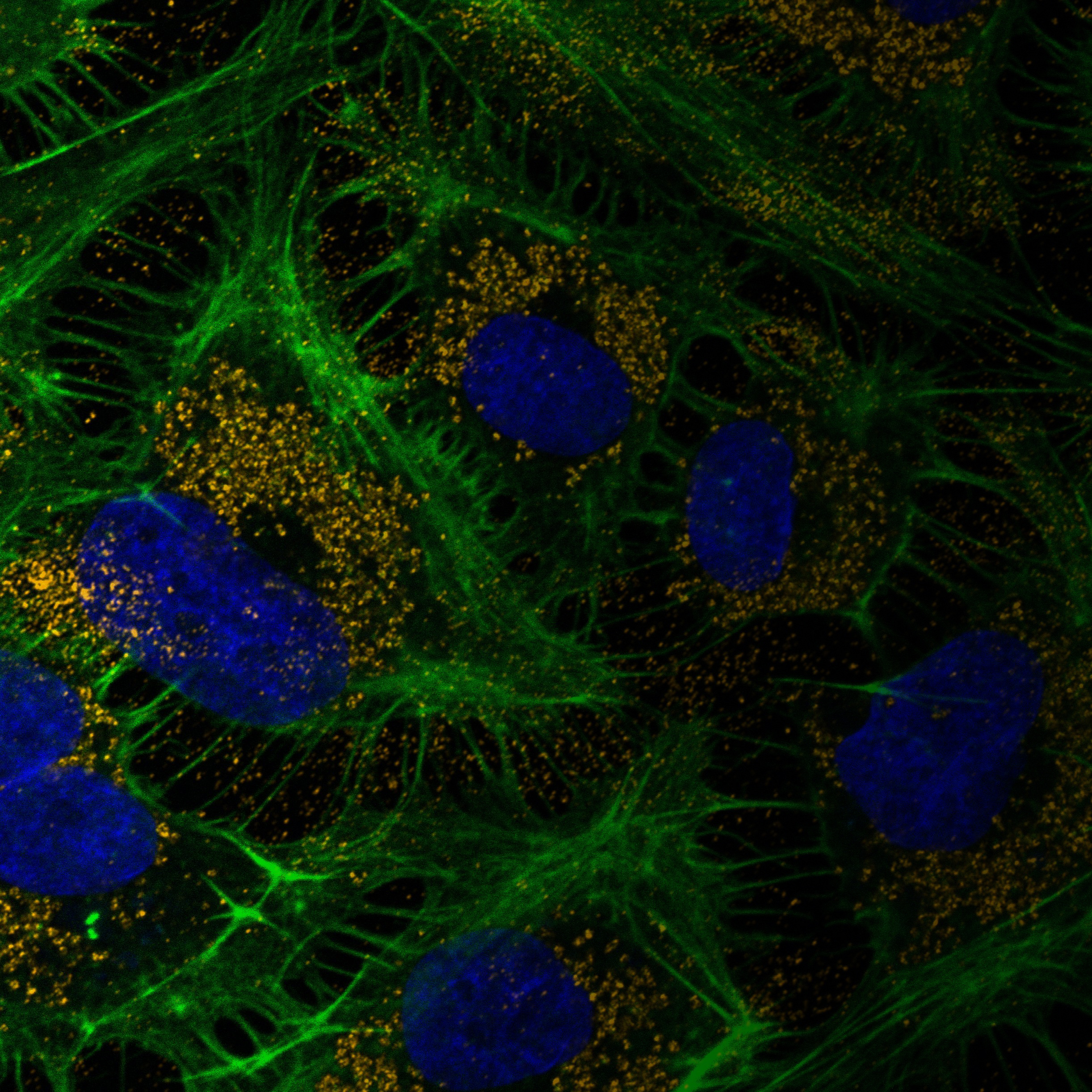Nanoparticles can impact cell morphology: Gold nanoparticle treatment of pulmonary endothelial cells leads to cytoskeletal contraction.

WHITNEY SINCLAIR, PhD
Senior Regulatory Affairs Specialist
Regeneron Pharmaceuticals

GRADUATE EDUCATION
University of Illinois at Urbana-Champaign
Chemical and Biomolecular Engineering
ADVISORS: Dr. Paul Kenis and Dr. Deborah Leckband
NIH Ruth L. Kirschstein Predoctoral Fellow (Jan. 2019 - Dec. 2021)
Research Interest - The increased use of nanoparticles in consumer products and therapeutic agents, and the prevalence of nanoparticles as environmental toxins increases concern about the adverse effects of nanoparticles on human health, especially the lung. Lung-on-a-chip microfluidic platforms possess the capability to mimic physiologically relevant lung tissue. The goal of my project is to use a sophisticated lung-on-a-chip platform to elucidate mechanisms of nanoparticle induced inflammation and nanoparticle migration through lung tissue.
RESUME

PUBLICATIONS
Whitney E. Sinclair, Ashtamurthy S. Pawate, Ty’Nya A. Larry, Jeremy M. Schieferstein, Joseph J. Whittenberg, Deborah E. Leckband, Paul J.A. Kenis. Lung-on-a-chip device with in situ imaging capabilities. Submitted.
Whitney E. Sinclair, Huei-Huei Chang, Arkaprava Dan, Paul J.A. Kenis, Catherine J. Murphy, and Deborah E. Leckband. (2020). Gold nanoparticles disrupt actin organization and pulmonary endothelial barriers. Sci Rep 10, 13320.
Whitney E Sinclair and Nanette R Boyle. (2016). Photosynthetic platform strain selection: Strain selection considerations and large scale production limitations. Biotechnologies for Biofuel Production and Optimization, 1 ed, 385-406. Edited by: Carrie Eckert and Cong Trinh. Elsevier.
Lung-on-a-chip platform to perform live-cell imaging

NEWS
“Started working as a Senior Regulatory Sciences Specialist at Regeneron”
“Successfully defended her graduate research!”
“Won second place in department Graduate Research Symposium oral presentation competition”
“Completed a summer internship at Amgen Inc. in medical device regulatory affairs”
“Presented an oral presentation at the Annual BMES Conference”
“Awarded NIH Ruth L. Kirschstein Predoctoral Fellowship”

CONTACT
sinclairwhitneyATyahoo.com


